If you’re like most homeowners, then you probably have a love-hate relationship with your lawn. While many people like centipede grass for its low maintenance and drought-resistant characteristics, it can become a nuisance when it takes over your lawn.
In some cases, centipede grass can spread to areas where you don’t want it. To get rid of it, you have several options. Before taking any action make sure that you really are dealing with it however. This blog post will teach you how to identify and kill centipede grass in 5 easy steps!
Table of Contents
Centipede Grass in General
Centipede grass is a warm-season turfgrass that grows well in sandy soils. It has a quick growth habit and spreads quickly, making it difficult to control.
The main problem with centipede grass is its tendency to become weedy. Weed-like grasses will invade your lawn, crowding out the desirable centipede grass. These weeds can range from crabgrass to broadleaf weeds like dandelions and clover.
However, centipede grass can spread on its own, which can be both a blessing and a curse. While it will establish itself quickly in an area, it can also spread beyond the intended area of your lawn. For this reason you might look into using Roundup to kill centipede grass. [1], [2], [3], [4]
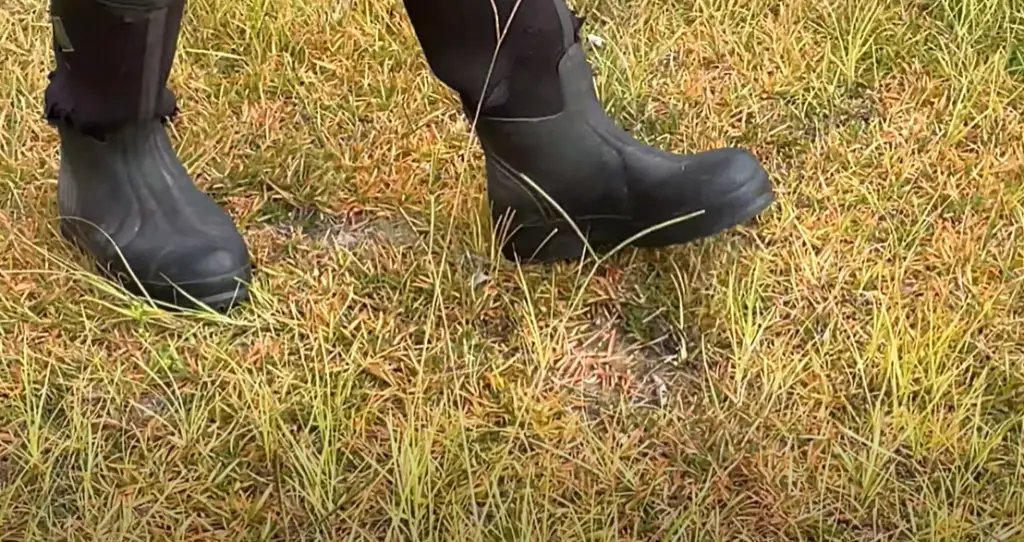
Killing Centipede Grass
So now that you have an idea as to why centipede grass can be difficult to manage, let’s talk about how to kill it. Luckily, centipede grass isn’t as hard to kill as other types of grass so you can usually get rid of it with relative ease.
Using the herbicide
The most effective way of killing centipede grass is by using an herbicide. An herbicide is a chemical that kills or inhibits the growth of plants and it’s one of the most effective ways to kill off unwanted vegetation such as centipede grass.
When choosing an herbicide, make sure to pick one that specifically targets broadleaf weeds, since these are what will be competing with your desirable grasses. You don’t want to choose a product that could harm your other lawn plants or turfgrass (unless you are purposely trying to get rid of them too). You have two main options, pre-emergent herbicides and post-emergent herbicides.
Let’s start with pre-emergent herbicides. Pre-emergent herbicides are best applied in the late-winter, early spring when temperatures are still cool. This is because pre-emergent herbicide typically works by preventing weed seeds from germinating, and cooler temperatures will give it more time to take effect.
Now for post-emergent herbicides. Post-emergent herbicides should be applied when temperatures are warm, usually in the late spring or early summer. You will want to wait until the centipede grass is actively growing and there are no signs of drought stress before applying any post-emergent herbicides. For maximum results, you may need multiple applications of both pre- and post-emergent herbicides throughout the season in order to get adequate control of centipede grass.
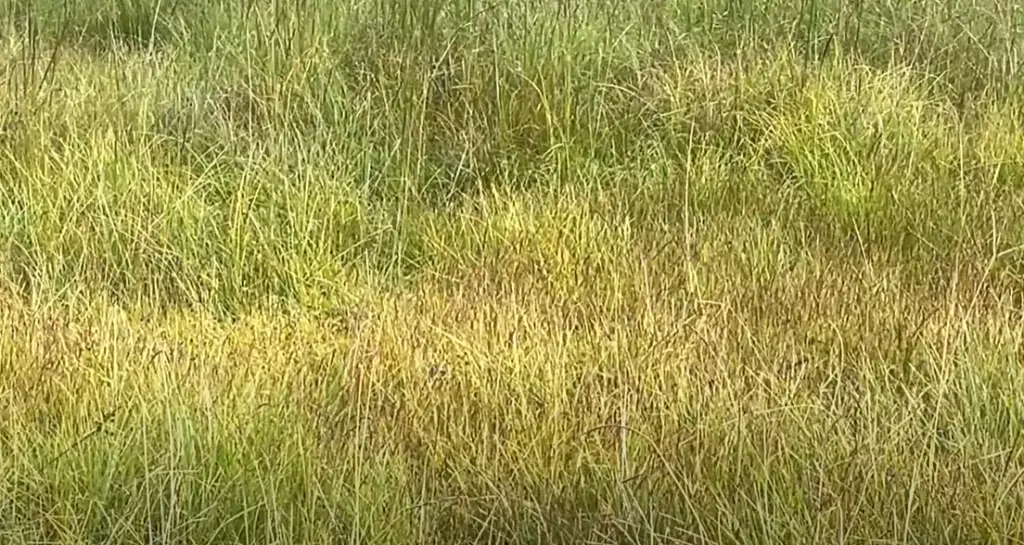
Post-emergent herbicides are generally more effective than pre-emergent herbicides. Post-emergent herbicides work by killing the weeds that are already present, while pre-emergents prevent new weeds from germinating in the first place.
There are actually several effective post-emergent herbicide options for killing centipede grass. Let’s discuss those!
Quinclorac
Quinclorac is a type of herbicide marketed under different trade names and used to kill centipede grass. Quinclorac is typically formulated as an agricultural or post-emergent agent, meaning that it kills existing weeds rather than preventing them from germinating.
Quinclorac is applied primarily to help control broadleaf weeds in turfgrass systems such as lawns, parks, golf courses and athletic fields. When treating centipede grass with this chemical, it usually comes in combination with other products like dicamba or trifluralin to increase the efficacy of the weed control program. As always, be sure to read all instructions on the label before applying any chemicals.
When applying quinclorac to kill centipede grass, you should use it as a spot treatment rather than an overall lawn application. This will help ensure that your other plants and turfgrass aren’t harmed or killed in the process.
MSMA
MSMA, or methylarsonic acid, is a common herbicide used to control broadleaf and grassy weeds. It is effective against many species of grassy weeds including crabgrass, foxtail, barnyard grass and annual bluegrass. However, it has been found to be especially effective in controlling centipede grass.
MSMA is available as a granular or liquid form of the chemical and is applied with either hand-held spreaders or backpack sprayers. Granular forms must be watered after application whereas liquid applications require no additional watering. For large areas of turfgrass where centipede grass infestation has become severe, MSMA can be an excellent tool for controlling the weed population.
Roundup
Roundup is a weed killer that can be used to kill centipede grass. It is a broad-spectrum herbicide, meaning it works on many different types of plants and weeds, including centipede grass. Roundup contains the active ingredient glyphosate, which kills both annual and perennial weeds.
The Roundup label will list the exact amount of glyphosate present in the product; however, this chemical should still be handled with caution as it has been linked to health risks when ingested or absorbed through skin contact. When using Roundup to kill centipede grass, it is important to follow all directions carefully and wear protective clothing such as long pants and sleeves, gloves, eye protection, and a mask to avoid inhaling any fumes.
Just like with other chemicals we mentioned, Roundup is non-selective, meaning it will kill any vegetation it comes in contact with, so make sure you are precise when applying the product. When using Roundup to kill centipede grass, it is important to apply the product as a spot treatment rather than over a large area as this can be more effective and will help ensure that only centipede grass is affected and nothing else. It may take multiple applications of Roundup to completely kill off all the centipede grass, so patience and persistence are key.
Finally, keep pets and children away from treated areas until dry. This goes for all herbicide products, as they can be hazardous if ingested. With proper use, Roundup can be a good option for killing centipede grass. The last thing you want to do is create more work, or worse, put yourself at risk of harm! [1], [2], [3], [4]
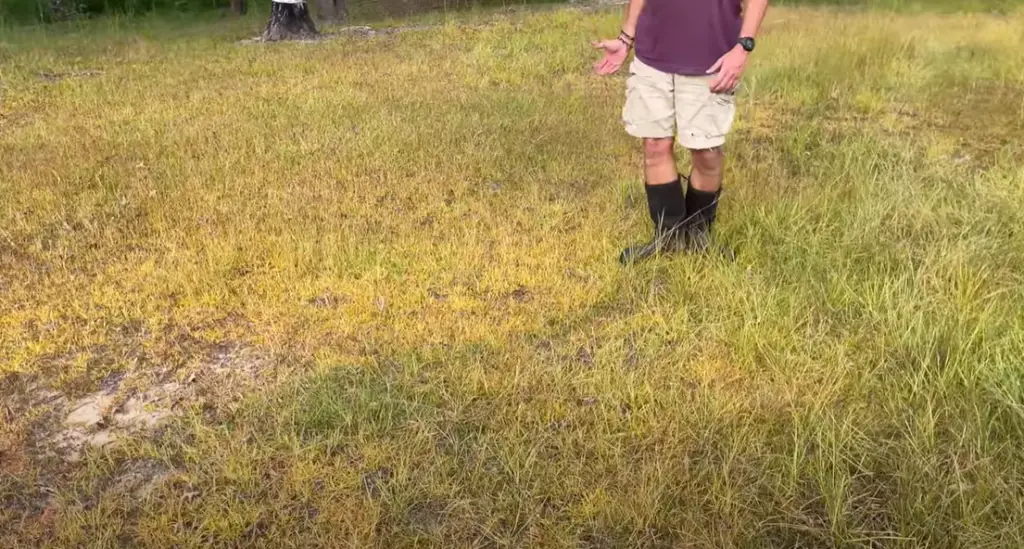
Vinegar method
If herbicides are not your thing, you can still take matters into your own hands and kill centipede grass with white vinegar. Vinegar is a safe and natural alternative to chemical weed killers, but it needs to be applied correctly in order to be effective.
First, you will need to purchase a white vinegar with a high concentration. This higher level of acidity is necessary for the vinegar to penetrate the cell walls of the plant and work its way down to the roots, killing off all parts of the plant.
Once you have your vinegar ready, you need to apply it directly to the centipede grass. It is important to cover all parts of the weed, from leaves to stems and even down into the soil if possible. Be sure not to over-water the area after applying the vinegar, as this can dilute its effectiveness.
This method may take a few applications before you start seeing results, but with persistence you will eventually be able to rid your lawn of centipede grass for good. If you find that the vinegar is not working well enough or fast enough for your needs, you may want to consider using a commercial herbicide instead. [4]
FAQ
Can vinegar kill centipede grass?
Yes, vinegar can be used to kill centipede grass. Vinegar is a natural weed killer and you can use its acidic properties to target and destroy the centipede grass. When using vinegar to kill centipede grass, it’s important to use a high-strength formula that contains at least 15% acetic acid. Start by applying a liberal amount of vinegar directly onto the patches of centipede grass you wish to kill. Make sure to get good coverage for maximum results. Vinegar is most effective when used on actively growing weeds so it’s best to apply during hot weather with little or no rainfall in order for the acidic properties to work its magic. For best results, repeat applications every 7-10 days until all patches of centipede grass have been eliminated.
Will roundup for lawns kill centipede grass?
Roundup for lawns is a broad-spectrum herbicide, so it can kill a variety of weeds and grasses. It also contains glyphosate, which is especially effective at killing centipede grass. However, Roundup for Lawns cannot be selective when applied to a lawn that has other grasses growing in it. If you want to target only the centipede grass without killing the other plants in your lawn, try using a post emergent herbicide specifically made to control centipede grass such as Dismiss or Image. Be sure to check the label before purchasing and follow all instructions carefully when applying any type of chemical product.
What kills centipede grass?
The most effective method for killing centipede grass is to use a herbicide that contains the active ingredient glyphosate. Glyphosate is a non-selective, broad-spectrum systemic herbicide, meaning it will kill all types of plants, including desirable ones. It works by inhibiting an enzyme found only in plants and not in animals or humans, thus making it safer to use around children and pets than other chemicals.
When applied correctly, glyphosate can be very effective in controlling centipede grass without causing any harm to adjacent desirable plants. When using glyphosate, follow the label instructions carefully to ensure proper application rates and safety precautions are taken.
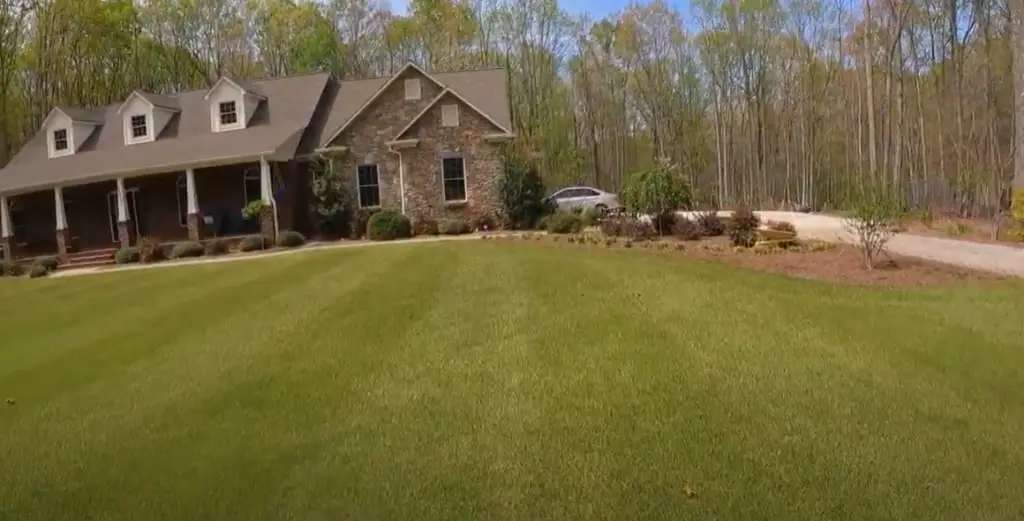
Will centipede grass choke out?
While not as strong as certain other grasses, centipede grass can choke out other grasses if it is not kept in check. The key to preventing it from taking over is to mow regularly and remove any excess thatch or weeds that can compete with the centipede. Because of its slow growth rate, you may have to mow more frequently than other types of grass, but the effort will pay off in preventing a takeover. Additionally, you may want to apply an herbicide specifically designed for killing centipede grass to prevent its spread.
What kills centipede grass in Bermuda?
Unfortunately, there is no easy answer to this question. You can’t use any herbicides since they will also kill off desirable grasses and other plants. The best way to get rid of centipede grass in Bermuda is by using a combination of physical removal, manual weeding, and overseeding with desirable grasses.
However, Bermuda grass is much stronger than centipede grass and will overpower it with time. Therefore, it is important to make sure that the Bermuda grass you are planting is adapted to your climate and soil.
For physical removal, manual weeding is the most effective method as it removes the entire root system of the centipede grass. Make sure to pull out as much of the roots as possible so that no remnants are left behind in the soil. You can also use vinegar or other organic products to help kill the centipede grass, although this method is not always as effective.
Useful Video: Removing Centipede Grass Before and After
Conclusion
Centipede grass is one of the most popular choices for lawns however it can spread to the areas you definitely don’t want it to. In this article, we have covered the most effective ways to get rid of centipede grass without damaging your lawn.
We’ve discussed how pre-emergent herbicides work and how they can be used as a preventative measure against centipede grass. We also looked at how post-emergent herbicides are more effective at killing existing centipede grass than pre-emergent treatments. Lastly, we touched on vinegar removal methods which help keep the growth of this grass under control.
Remember that with chemical treatments, you should always follow the instructions closely and wear protective clothing when applying them. It’s also important to use the right type of herbicide for your lawn as some are better suited for certain types of grass.
No matter which method you decide to use, make sure you are vigilant in regularly checking and controlling the spread of centipede grass on your lawn. To make sure that your efforts are not wasted, always remember to act soon after noticing any centipede grass growth in unwanted areas. With proper knowledge and care, you will be able to successfully eradicate this pesky weed from your lawn for good. Good luck!
References:
- https://www.spring-green.com/learn/blogs/blog-remove-centipede-grass-tall-fescue-lawn
- https://www.lawnandpetal.com/best-weed-killer-for-centipede-grass/
- https://homeguides.sfgate.com/drought-tolerant-plants-outdoor-13771625.html
- https://havegarden.com/get-rid-of-centipede-grass/#Will_Vinegar_kill_Centipede_grass

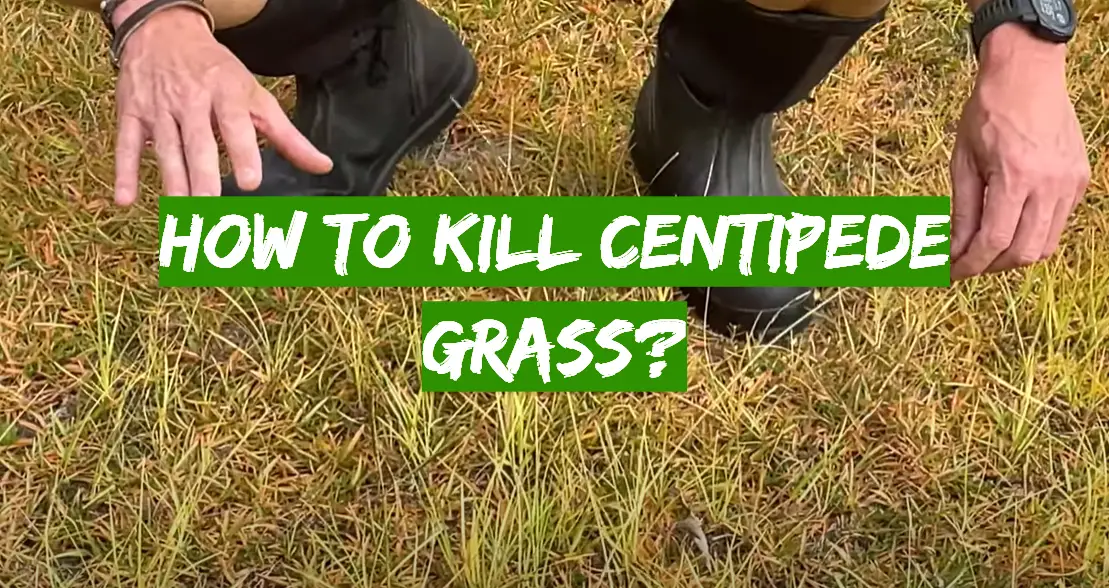

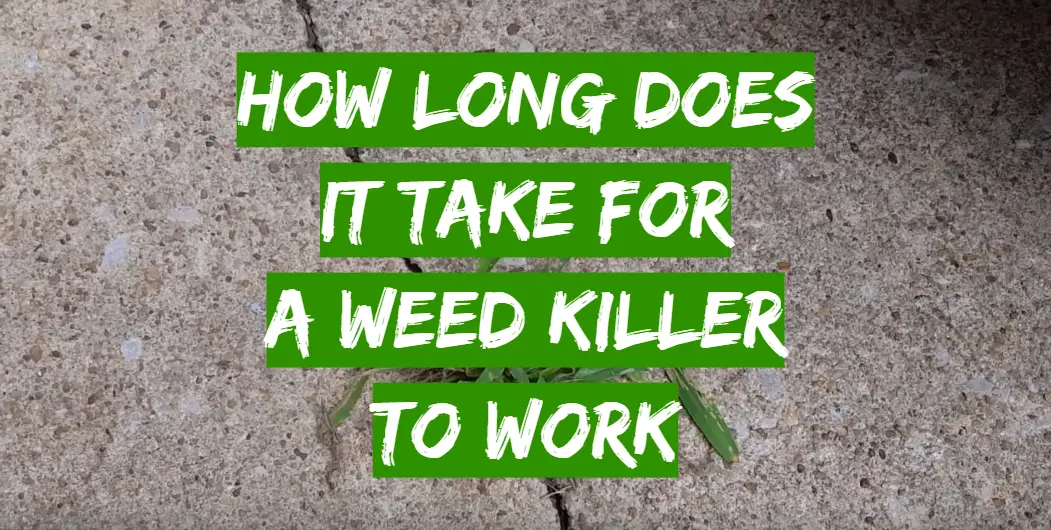
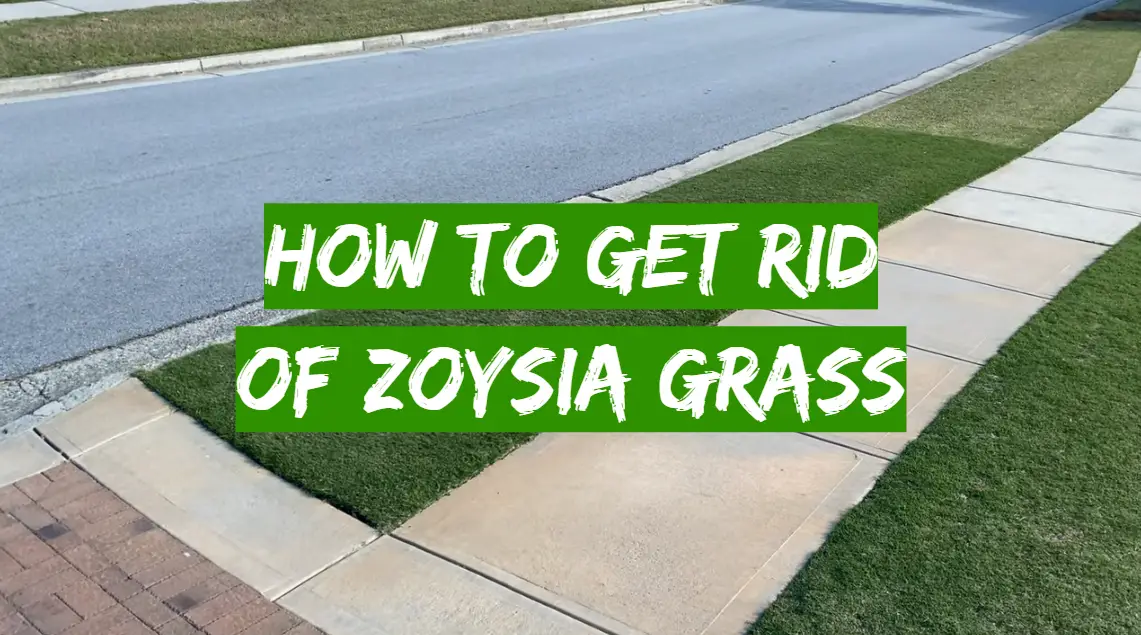
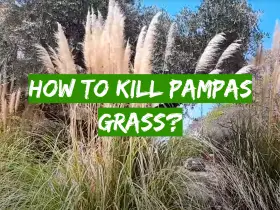
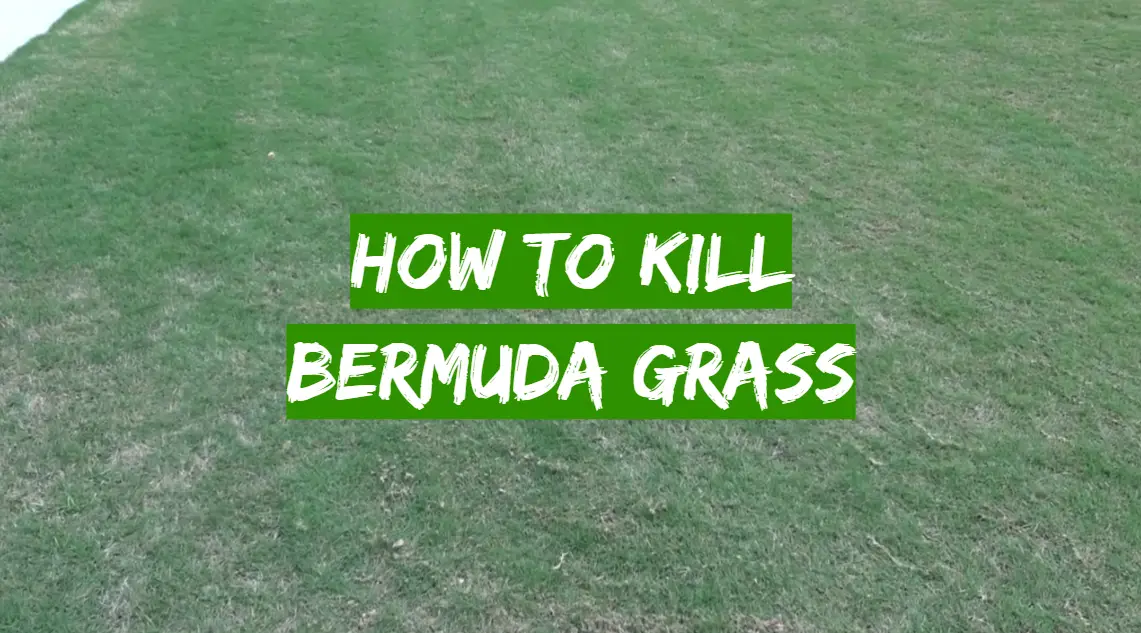
Leave a Reply
View Comments